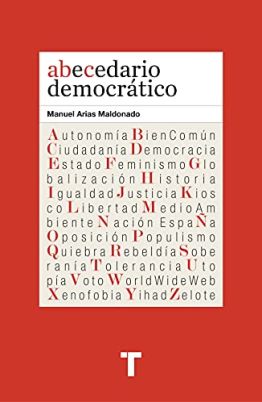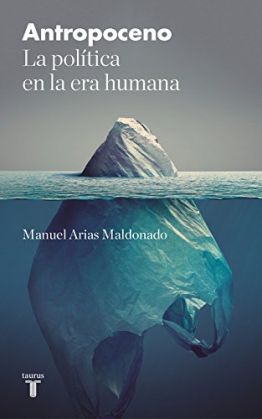Democracy, sovereignty and territory: Squaring the circle
- Dossier
- Oct 22
- 8 mins

How do democracy, sovereignty and territory relate to one another? The ownership and exercise of sovereignty make the preservation of democracy possible, at the expense of subjecting it to inescapable limitations: new states cannot be established on a regular basis. To prevent identities from playing a destabilising role in constitutional democracies, they need to be contained through the careful design of institutions.
We are so used to living in societies organised by a State that we rarely question its existence or notice its defining features. Perhaps the most defining characteristics are the relative control that public power exercises over a territory – where it successfully claims a monopoly over violence and the enforcement of binding rules – and the successful demand for political obedience that manages individuals it transforms into citizens. In turn, the latter’s allegiance to the state is often based on the support provided by the nation, to whose members – following the demise of absolutist monarchies – the ownership of sovereignty is eventually attributed. But Rousseau was wrong: sovereignty can only be exercised through delegation. This task falls on elected representatives, as well as on civil servants and government officials.
Sovereignty is not what it used to be: that half-forgotten concept of ancient Rome that the French thinker Jean Bodin defined in the 16th century as “the absolute and perpetual power of a Republic”, the latter being identified at the time with the figure of the king, is far from representing such a political power today. It is true that those monarchs did not rule that much either, as any reader of Shakespeare knows; the means they had at their disposal to carry out their wishes were, moreover, too meagre: compare the information that the Chinese regime has today about each of its citizens with what King Philip II knew about his subjects. This relative powerlessness of politics has worsened as societies have become more complex and interdependent; aspiring to accomplish a goal does not suffice – such as overcoming economic crises or eradicating racism –, the right choices must are made to bring the goal to fruition. Often, even that isn’t enough: reality is a school of disappointments.
This explains why the old state sovereignty enshrined in the Treaty of Westphalia, which recognised the independence of states to govern the society over which their territorial dominion fell, has since crumbled. International organisations have emerged, cooperation treaties have been signed and even a supranational body as distinctive as the European Union has been created, whose members surrender part of their sovereignty (according to the European Court of Justice) or simply jointly exercise certain public powers (interpretation of the German Constitutional Court). And what about the pressure that markets are capable of exerting or the cultural hybridisation that the internet is accelerating? With Brexit we have already seen how futile calls to “regain control” are in a globalised society, where idealising the old sovereignty only serves to undermine what is humanly possible to exercise.
States’ loss of the monopoly of government power has not been accompanied by its acquisition by any supranational organisation: there is no, and perhaps never will be, a global state.
Sovereignty and government power
As Dieter Grimm has pointed out, States’ loss of the monopoly of government power in the post-Westphalian order has not, however, been accompanied by its acquisition by any supranational organisation: there is no, and perhaps never will be, a global state. If we are to continue to use the concept of sovereignty, it should be separated from the full possession of public power. For Grimm, its most important function today is “protecting the democratic self-determination of a politically united society with regard to the order that best suits it”. In other words, sovereignty protects societies from outside interference and facilitates their internal self-determination. And this, whatever the power – military, economic, cultural – enjoyed by each sovereign unit: Malta can do less than France, but France cannot do everything. Moreover, sovereignty must be defended; as the Russian invasion of Ukraine demonstrates, claiming sovereignty is not enough. This is why Europeans are contemplating whether they shouldn’t gain strategic autonomy, rather than relying on the US to defend them against external military threats.
If we add to this the fact that constitutional democracies set legal limitations on State action, we can conclude that sovereignty in the classical sense of the term no longer exists. Instead, there are powers distributed on the basis of functional criteria: legislative, executive and judicial. The fact is that the possession of power is one thing, and its exercise is another: sovereignty is held by the nation’s people, but its exercise is delegated according to predetermined limits. The sociological populace must not be confused with the sovereign populace; the latter is an abstraction that manifests itself in the constituent moments and then remains latent: not even the biggest mass demonstrations can be considered to encapsulate the latter. That is why there are perfectly legitimate constitutions that citizens have not endorsed with their vote, as in the case of the German constitution.
It so happens that government powers can be organised in different ways within States. Territorially, too: Some choose a centralised design (France), while others prefer decentralisation (Germany and Spain). As democratic States, all of them envisage the “right to self-determination”, in the sense in which it is understood in international law. Even the centralists! What matters is that citizens have political rights and can participate in determining the direction of their political community. From this point of view, there would be no clash between democracy, sovereignty and territory: there are sovereign states that exercise their dominion over a territory demarcated by their constitution and which, moreover, organise themselves internally in a democratic manner. And just as sovereignty is unavailable, since it is the element that allows for democratic self-determination, its territorial delimitation is not open to negotiation either.
Recognising the internal diversity of modern nations naturally leads to federal or quasi-federal systems wherein parts of the system enjoy autonomy to decide within their established scope of decision-making.
The internal threat to State sovereignty
Nevertheless, sovereignty is still a bone of contention within contemporary liberal States. The resurgence of nationalism in recent decades has led many sub-State political movements to challenge State sovereignty, demanding greater political autonomy or the right to have their own State. Some thinkers even advocate the need to move towards co-sovereignty between States and their supposedly internal nations. But the fact that sovereignty is organised in accordance with constitutional liberalism means that the political dispute cannot be about sovereignty. Sovereignty has been recast and, if we take its classic version as a reference point, dismantled. In any case, it is a matter of questioning the way in which sovereignty is organised internally, for example, in terms of the distribution of powers between different institutions or territorial levels. But sovereignty, as such, cannot be shared: it is impossible for two rule systems to represent us that must be in force in the same place and be mutually independent; as the eminent Austrian jurist Hans Kelsen taught us, this would undermine the uniqueness of the regulatory system. It is a different matter when sovereign powers can be exercised in such and such a way, based on a particular territorial or functional distribution.
This is where the tension between sovereignty and nation can surface: those who feel part of what are called stateless nations understand that sovereignty cannot be held over the nation. Does the same territory not host them, believing they belong to a different nation? But to speak of stateless nations is more confusing than enlightening: if we were to say that only those who have a State are nations, the scenario would be simplified considerably. Within that nation, of course, there will be particularist sensibilities or beliefs that can be accommodated (Spain) or ignored (France). From a prescriptive point of view, territorial power-sharing seems advisable: Recognising the internal diversity of modern nations naturally leads to federal or quasi-federal systems wherein parts of the system enjoy autonomy to decide within their established scope of decision-making.
As the former absolutist State had to reconvert itself into a constitutional State, the beneficiaries of this process would have to accept that there is no right to self-determination in a democracy.
However, a viable distribution of territorial power calls for the parts to be loyal to the whole: since we cannot prevent identities from playing a role in the political life of constitutional democracies, their potential for destabilisation must be contained through the rigorous design of institutions and the demand for that Bundestreue or federal loyalty without which no decentralised State can survive in the long run. The problem is clear: nationalism is not characterised by its loyalty to the whole nation and, once it gains power, it rolls out nationalisation policies designed to increase dissatisfaction with the whole nation, usually through a clever combination of victimhood and the suppression of pluralism.
What then? This conflict can only be resolved through a mutual pact of accepted frustrations: just as the former absolutist State had to reconvert itself into a constitutional State, and ended up accepting that power had to be distributed within it, the beneficiaries of this process would have to accept that there is no right to self-determination in a democracy and dedicate themselves instead to using the resources at their disposal - which are generally in abundance – to realise their identity without bothering anyone, respecting at all times the rights of those citizens who do not subscribe to the nationalist ideology. Otherwise, collective identity will be put before democracy, on the understanding that we are talking about a liberal democracy dedicated to protecting the individual and not collectivities.
Bibliographic references
Abellán, J. Democracia. Conceptos políticos fundamentales. Alianza, Madrid, 2011.
Bodin, J. Los seis libros de la República. Tecnos, Madrid, 2006.
Constant, B. Principios de política aplicables a todos los gobiernos. Katz, Buenos Aires, 2010.
Dahl, R. La democracia. Ariel, Barcelona, 2012.
Grimm, D. Sovereignty. The Origin and Future of a Political and Legal Concept. Columbia University Press, New York, 2015.
Máiz, R. Nacionalismo y federalismo. Una aproximación desde la teoría política. Siglo XXI, Madrid, 2018.
Sartori, G. Elementos de teoría política. Alianza, Madrid, 2005.
Steger, M. Globalización. Una breve introducción. Antoni Bosch, Barcelona, 2019.
Vallespín, F. El futuro de la política. Taurus, Madrid, 2000.
Recommended publications
 Abecedario democráticoTurner, 2021
Abecedario democráticoTurner, 2021 Antropoceno. La política en la era humanaTaurus, 2018
Antropoceno. La política en la era humanaTaurus, 2018
The newsletter
Subscribe to our newsletter to keep up to date with Barcelona Metròpolis' new developments




